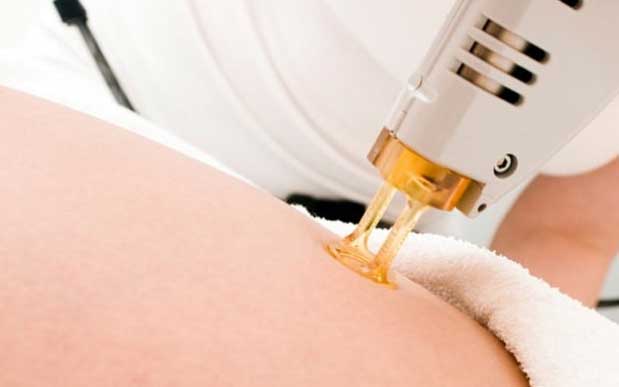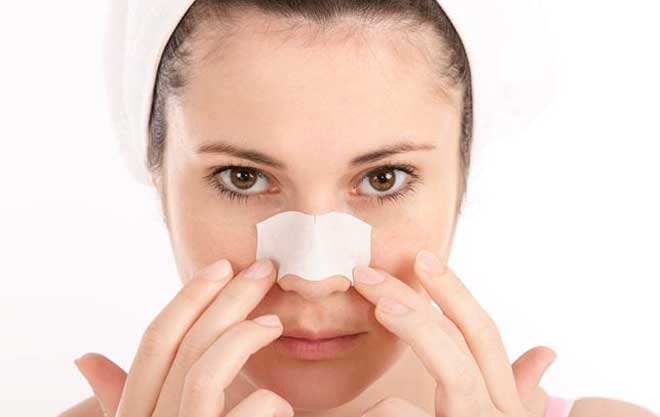
Could laser hair removal give you CANCER?
"Laser hair removal could increase a person′s chances of being diagnosed with cancer, experts have warned.
The smoke produced, which smells like ′burning hair′, contains chemicals that irritate the airways and are known to cause cancer.
Those who are regularly exposed to the smoke, those who perform the cosmetic procedure for example, could be at greatest risk.
Dr Gary Chuang, of the University of California, Los Angeles, warned that the risk increases when the procedure is performed by someone who is not trained adequately.
He said: ′Laser hair removal performed by improperly trained personnel or in an inadequately equipped facility will put both the healthcare workers and patients at risk.′
He added that the procedures should only be performed in spaces with ′an adequate air filtration system and a smoke evacuator′.
Dr Chuang and his team collected hair smaples from two volunteers, sealed the samples in glass jars, treated them with a laser, and captured 30 seconds of laser ′plume′ - a smoky mix of burnt hair and chemicals.
They identified 377 chemical compounds in the smoke, including 20 that are known environmental toxins, such as carbon monoxide, and 13 that are known or suspected to cause cancer.
They included benzene and toluene, according to the study, published in JAMA Dermatology.
Dr Chuang and colleagues also measured the concentrations of very fine particles in the plume that could be easily inhaled.
They found an eight-fold increase in concentrations of the particles compared with room air before the procedure, even when there was a smoke evacuator nearby.
When they turned the smoke evacuator off for just 30 seconds, the particle count increased more than 26-fold.
The researchers conclude that the burning-hair plume released during laser hair treatment should be considered a ′biohazard, warranting the use of smoke evacuators, good ventilation, and respiratory protection.′
Risks are likely greater for practitioners who may work eight hours straight, Dr Chuang observed ? but no studies have yet looked at how much exposure to the burning-hair plume is too much.
′It′s similar to estimating the effect of second-hand smoke - very difficult to do,′ Dr Chuang acknowledged.
Nevertheless, he stressed, ′it′s important to minimize the risks.′
Dermatologist Dr Delphine Lee of the John Wayne Cancer Institute in Santa Monica, California, urges people to ′keep these results in perspective′.
Consider, she told Reuters, ′how these levels compare to everyday exposures to other carcinogen-laden air,′ such as an urban environment with lots of car exhaust or a smoky restaurant.
′There has been no reported epidemic of increased lung disease or other cancer in technicians or health professionals who perform procedures with lasers, people who visit dermatology offices that use lasers, or patients who have frequent laser hair removal,′ Dr Lee noted.
′However, this landmark study alerts us to consider the consequences and further studies are warranted to investigate the risk of exposure to laser hair removal plume,′ Dr Lee said.
Although the actual risks aren′t yet known, Dr Lee advises both practitioners and consumers ′to take some moderate precautions, such as wearing respiratory masks,′ during the procedure."
Related News

Whole-body vibration may be as effective as regular exercise

Pasta eaters may have better diet quality: study

Five foods that can cause problems if consumed on an empty stomach!

The Benefits of Yoga Beyond Flexibility

Cancer warning over skin bleaching treatment

Mans lips exploded after he became 'addicted' to fillers

Do you want to be paid for sleeping well at night?

Natural Ways to Remove Blackheads on Face and Nose
Most Read
★The Best Breakfast Foods for Weight Loss
★Those who consume fruit and vegetables have a 40% lower risk of an incurable lung disease
★Five foods that can cause problems if consumed on an empty stomach!
★Best and Worst Drinks for Weight Loss
★How to prevent peanut allergies in children?
★Top 5 foods for glowing skin
★Study reveals alarming dangers of anti-ageing jabs
★Weight-lifting and protein shakes rich in growth hormones may make you bald
★Top Foods for Calcium and Vitamin D
★The Simple 20-Minute Habit That Could Save Your Life
★11 Realistic Methods of Stress Management
★Face Scrubs and Face Packs
★5 surprising beauty benefits of amla
★A Beginners Guide to Sun Salutations
★6 Best Oils for a Naturally Clear and Glowing Skin
★Does ginger gene offer key to younger looking skin?
★Exercise can help boost memory through bone hormone: Study
★Eat more fruit and veg for a longer life
★Healthiest Foods For Women
★10 Healthy Twists on Classic Diner Dishes
★12 Benefits of Hair Spa Treatment
★Work stress may lead to irregular heart rate
★Recycling temple waste along the Ganges with Help Us Green
★Study finds dramatic weight loss can be achieved WITHOUT counting calories
★What dangers are hidden in your pillow?
★Popular weight loss strategies
★Hard work, no pay linked to mental health issues in comedians
★This is how many calories your tea and coffee habit is adding to your diet EVERY DAY
★A platter full of seafood
★5 foods for healthy skin
★Yoga Poses for People with Less Flexible Body
★Learn to Do Vinyasa Yoga for Weight Loss
★Making handloom accessible
★The best skin care quickies men with oily skin can get
★Pasta eaters may have better diet quality: study
★10 Signs You are Obsessing About Your Weight
★Using Kalonji Seeds for Weight Loss
★This Yoga Flow Will Instantly Boost Your Mood
★Yoga Asanas To Prevent Hair Loss
★Surgery addict rushed to hospital after his body REJECTED his new nose
★Outdoor Activities to Lose Weight
★Healthy eating
★Ways to Use Honey for a Glowing Skin
★5 Yoga Poses that Can Give You a Glowing Skin
★How to Gain Weight in 7 Days to Get Rid of the Skinny You
★Mushrooms could prevent risk of Dementia, scientists say
★Daily consumption of tea protects the elderly from cognitive decline
★5 Common Mistakes that May Ruin Your Skin
★Is This the Best Diet for Post-Menopausal Women?
★How you should wash your face?
